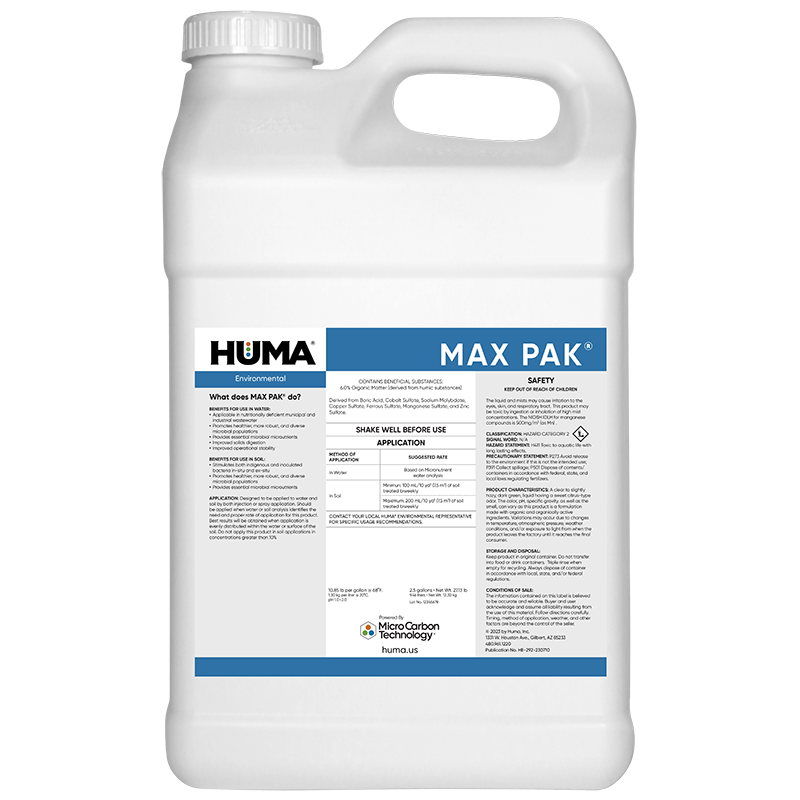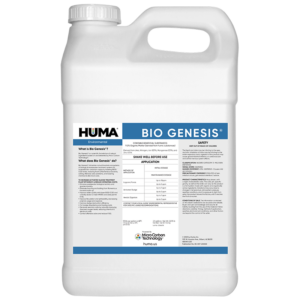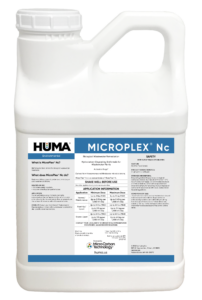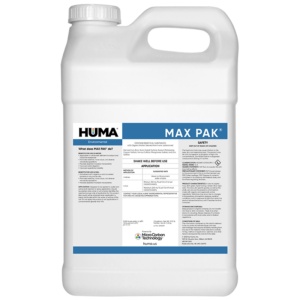Max Pak® (HE)
Benefits of Use:
- Stimulates both indigenous and inoculated bacteria in-situ and ex-situ
- Promotes healthier, more robust, and diverse microbial populations
- Provides essential microbial micronutrients
Benefits of Use in Water:
- Applicable in nutritionally deficient municipal and industrial wastewater
- Promotes healthier, more robust, and diverse microbial populations
- Provides essential microbial micronutrients
- Improved solids digestion
- Improved operational stability
FAQs
Related Videos
Related Products
Related Case Studies

Super Phos® Lowers Papermill Operating Costs in China
Problem The existing wastewater treatment system uses 600 kg/day of diammonium phosphate (DAP) to provide the needed phosphorus concentration to maintain a healthy microbial population to treat wastewater. These microorganisms break down the organic matter being discharged from the paper processing facility. Without the correct concentration of available phosphorus, the microorganisms are unable to grow

Bio Genesis® Reduces Foam and Increases Stability at Arizona Municipal Wastewater Treatment Facility
Problem A municipal wastewater treatment facility in Arizona uses an activated sludge system with 4 oxidation ditches to treat approximately 9 million gallons per day. The system frequently experiences intermittent foaming and settling issues. The operator was looking for a solution to the foaming and settling issues that would also provide operational stability throughout the

Bio Energizer® Toxicity Testing
Abstract Bio Energizer® is frequently used to facilitate bioremediation of wastewater. A study was conducted by an independent laboratory to measure possible negative effects Bio Energizer® might have on a freshwater test species (rainbow trout). Using EPA-approved methodology to evaluate Bio Energizer®, the lab administered the product at 10 ppm to a test tank and
Related Blog Posts

Recycled Sewage: What Are We Putting on Our Farmland?
By Jael Batty Sewage sludge is a controversial input for farmers to use. Considering the toxins in today’s wastewater, are our treatments and regulations effective in eliminating micropollutants from sludge?

Do Constructed Wetlands Improve Water Quality?
By Jael Batty Constructed wetlands, which mimic natural wetlands, treat municipal and industrial wastewater, mine drainage, small business and household greywater, animal wastes, and agricultural and stormwater runoff. They are recommended by regulatory agencies as a best management practice to control urban runoff.

Food Processing Wastewater Treatment Solutions
Experience the world’s most efficient wastewater remediation products, for operational stability of food processing wastewater treatment facilities.






